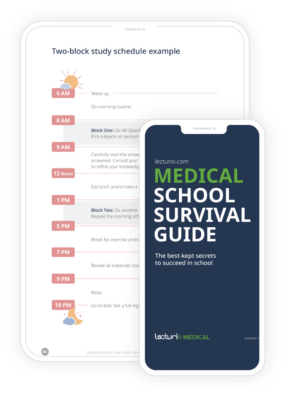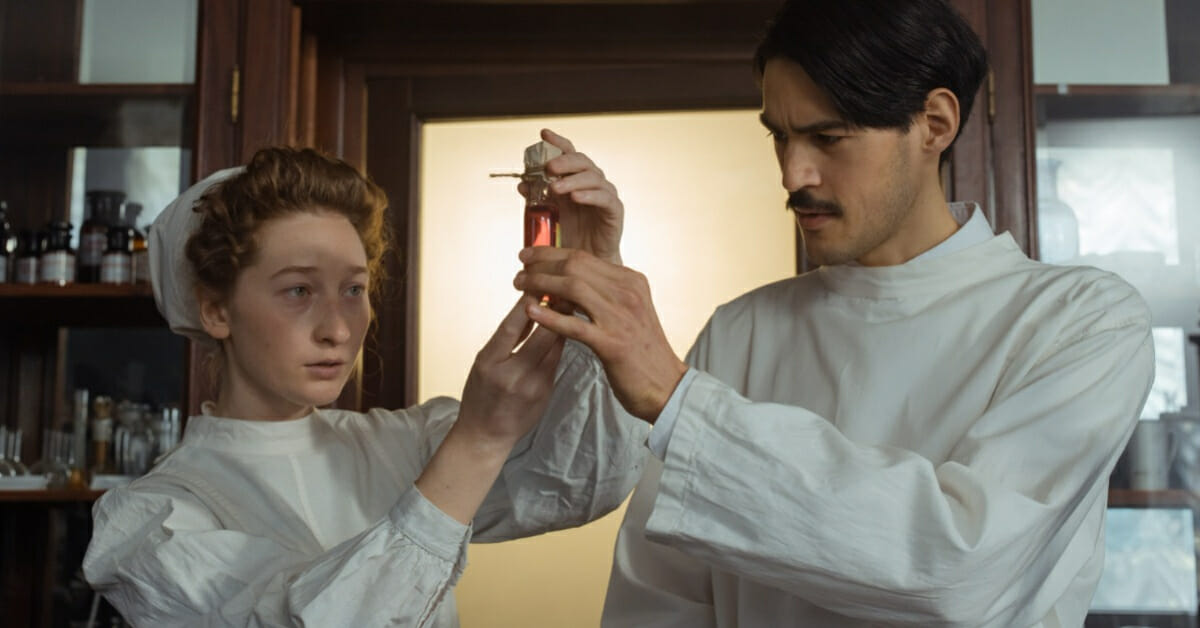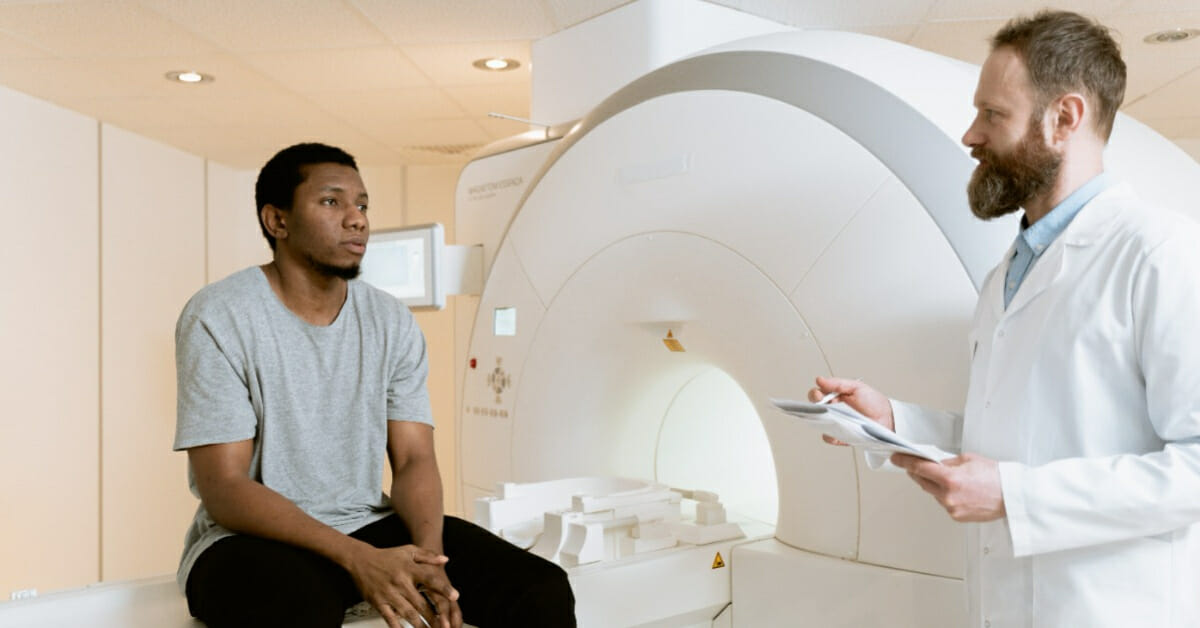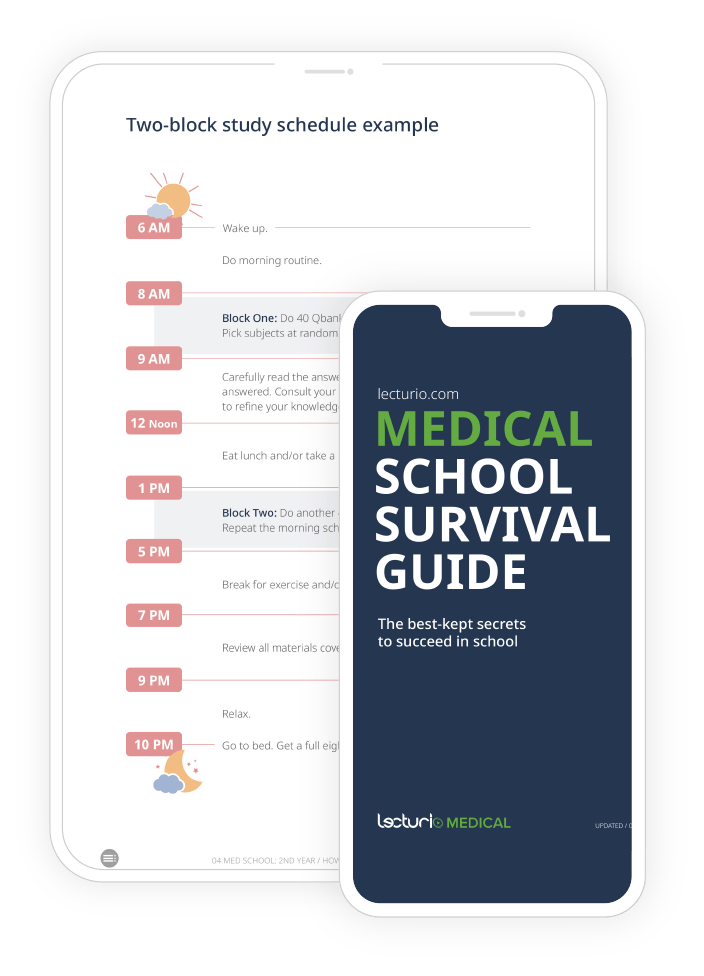Most med schools in the United States require that you participate in some sort of scholarly project. Participation in the academic life of medicine is a great way to enhance your residency applications, and it may even be expected or required to successfully match in the most competitive specialties.
Traditionally, medical student research took the shape of a formal research opportunity in a research lab with a research mentor, culminating in a publication. Today, research in medical school takes a variety of forms, including the traditional one.
Beyond the typical lab format, medical students engage in scholarship by conducting poster presentations, writing up case presentations of interesting diseases they have encountered on the wards, or participating in quality improvement initiatives or other health systems science projects. All of these scholarly pursuits fall under the broad category of “research”, which may be required during medical school, and all contribute to the strength of a student’s residency application.

Take the Online Course: Research Ethics
Covers all essentials: nuremberg code ✓, belmont report ✓, declaration of helsinki ✓, informed consent ✓
Is It Even Possible to Do Research in Medical School?
With all the day-to-day challenges of medical school, it can be difficult to see where time for research fits in. With good planning and time management, however, you can include research in medical school. While fulfilling your clerkship requirements, studying and passing exams and courses, and taking care of patients are all top priorities, carving out time for research is certainly a possibility, especially on lighter rotations and with the udicious use of elective time.
Many medical schools now offer a dedicated research period for you to engage in scholarship. Depending on the project, this period may be more or less time than you need to complete your research. You should check to see if your school offers dedicated time for research, and when it is.If you do have a dedicated research block, checking with your school about the expectations for deliverables at the end of the time period, as well as whether the block is structured or unstructured, will help you to make the most of this block.
If your school does not offer a specific time period for research and you anticipate needing to work on a project full-time, using elective time for research or scheduling research during lighter rotations can be a great way to make the time you need for research.
When is the best time to do research in medical school?
For many medical students, especially those applying to highly competitive specialties, you’ll want to start thinking about when to do research in medical school early in your academic career. If you know you have specific research or subspecialty interest going into medical school, start looking for a research project or mentor as soonas possible. This will maximize your chances of completing published research by the time you need to apply for a residency program.
If you are not sure about research or aren’t interested in conducting research at all, waiting until closer to your residency application and choosing an interesting case or project to present as a case conference or poster may make more sense. If you do intend to publish a paper or complete a large scholarly project, make sure you start early so that your project is complete in time for residency applications, recognizing that not every project results in a publication. For larger projects, it makes sense to have identified a research mentor and to start working on your project sometime before the beginning of your second year.
Keep in mind that the publication process of peer review and article revisions can take longer than anticipated, and your article may not appear in print until several months after you submit your abstract.
Smaller projects, such as a case vignette or poster presentation, typically have a much faster turnaround time – usually only a few months from project inception to presentation, depending on the venue where you present.
Do you have to do research in medical school?
Even for physicians in training who have no desire to do research after medical school, research can be a useful way to build skills that will be helpful in their future career. For instance, a student interested in hospital medicine might use the research time to complete a quality improvement project on reducing the risk of infections acquired in a hospital, which in turn might help them in a future role as a medical director.
A future general surgeon might decide to use the research time to get an MBA, helping them gain the business skills necessary to run a successful independent practice. A prospective infectious disease specialist might conduct a public health study that gets them comfortable with interpreting statistics, which could be beneficial when running a local health department.
Students who are not interested in staying in academics after graduation but are required to do research should make use of dedicated research time to build skills that they can apply outside of the academic world.
How to Do Research as a Medical Student
Every good research project starts with a question. You’re far more likely to stay engaged in research, and to produce a good research product, if you have a real interest in the question your project aims to answer. Once you’ve identified a question you hope to answer, ask your professors, attending physicians, and even other classmates if they know of anyone working on a similar question.
While you might not identify someone working on exactly what you are interested in, you’ll likely find someone with similar interests who can direct you to someone who is well-aligned with your interests. Once you identify a research mentor, it’s up to you to determine what your goals are in doing research.
If you intend to publish a paper that appears in a top-notch medical journal, for instance, your research will probably require more time and effort than if you hope to do a case presentation of an interesting disease you encountered on rounds.
Try to tailor the scope of your project to the time you have available to complete it. “I want to cure cancer” is not a realistic goal for a research project to complete as a medical student, but working on a specific gene pathway with a goal of presenting a poster at a national conference might be!
How to find research opportunities
Finding research opportunities as a medical student starts with identifying your area of interest. Do you have a subspecialty you are particularly fascinated by? If so, reaching out to an academic specialist in your area of interest is a great first step to finding research opportunities.
Fascinated by a particular case you saw on rounds? Ask your attending physician if they think the case might be appropriate for a poster presentation or to present at an academic conference. Not interested in writing up case reports or writing long research abstracts? Maybe an opportunity in quality improvement is right for you – ask your attending physicians if there are any hospital-level projects or initiatives which could benefit from some help.
Do you have a specific idea that you think could change the world? Try applying for a research grant or scholarship to help fund that opportunity and make it a reality. In many medical schools, and especially in those associated with academic research centers, the only limitations on research opportunities are those of your own imagination!
How is medical research funded?
Most medical research projects conducted by medical students are not funded and occur on the side, with a student volunteering their time and effort toward a project. However, if you are planning on a more extensive project that would take you away from your normal studies for a year or more, there are a variety of foundations and funded research opportunities that you can use to support yourself during the time you are conducting your research.
Generally speaking, the best opportunity to engage in funded medical research is by enrolling in a combined MD/PhD program.
If you are interested in a specific field of study and want to have protected, dedicated time to engage in medical research prior to residency, a combined MD/PhD program will give you the best balance of clinical and research training. However, MD/PhD programs are highly selective and are not available at every medical school.
You can learn more about combined degree programs on the AAMC website. The American Physician Scientists Association also maintains a list of funding opportunities for MD/PhD candidates on their website.
To Sum It Up…
Spending some time engaging in research during medical school can be rewarding, both personally and professionally. Although opportunities to engage in traditional research abound in medical school, students who are not interested in this can explore alternatives to traditional research, like case presentations, quality improvement projects, or even dual degree programs like an MBA. Pursuing research in any of these forms can be a great way to improve your residency application and help you develop the skills you need to succeed long after medical school.







